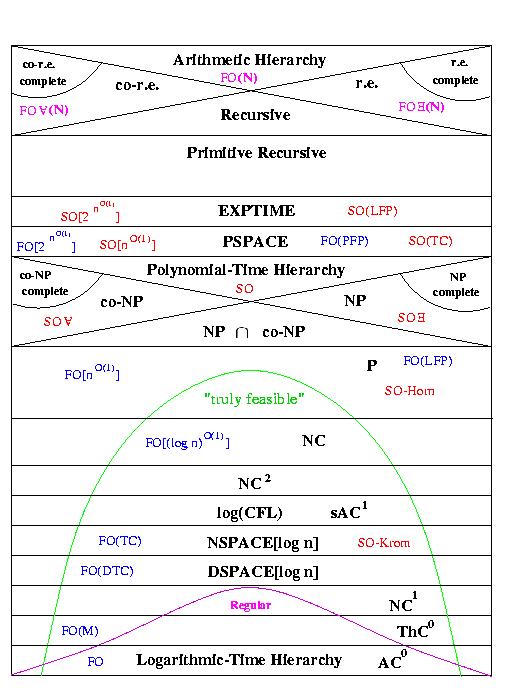| Announcements | | Course information | | Important dates | | Assignments and tests | | Lecture notes |
16/3/2010 Assignment 3 is now posted . Tentatively due March 23rd.
5/3/2010 The updated notes from Todd Wareham's guest lectures
3/3/2010 Here is a link to the notes from Todd Wareham's guest lectures
07/02/2010 Our midterm will be this Thursday, Feb 11th. After that, I will be away until March 7th. There will be no lectures on Feb 16th, 18th and 25th; on March 2nd and 4th Todd Wareham will substitute for me.
07/02/2010 Solutions to assignment 1 are now posted
02/02/2010 Assignment 2 is now posted.
29/01/2010 An example table from the notes is added to a1.tex. Feel free to modify it and add other features, if you like.
14/01/2010 I will be out of town until Jan 26th. Please email me if you have any questions!
06/01/2010 The first lecture is Thursday, Jan 7th.
For typesetting please use LaTeX. A good introduction to LaTeX is "Essential LaTeX" .
Marking scheme (tentative!): 3 assignments 15% each,
a midterm %15, a presentation 10%, and a final exam 30%.
Description: The goal of this course is to help students develop an intuitive feel for hardness of computational problems, and an ability to prove that intuition. What does it mean that a given problem is "hard"? In which sense is it "hard": is it memory-intensive, computation-intensive; how are these notions related? How expressive are various languages used in databases and AI, and what does it mean computationally? These are some of the questions we will explore in this course.
In particular, we will cover the classical P vs. NP problem (is checking a solution easier than finding a solution? Nobody knows!), as well as classes of higher complexity (polynomial-time hierarchy), space classes, counting classes, randomized and circuit complexity, and descriptive and proof complexity. We will also review some computability theory and, time permitting, cover a range of advanced topics such as PCP, natural proofs (why it is hard to resolve the P vs. NP question), hardness of approximation, etc.

For now, please see lecture notes from the previous run of this course and notes on computability and NP-completeness from an undergraduate course I taught before. I will try to post updated notes if there are sufficient changes from before, new material, etc.